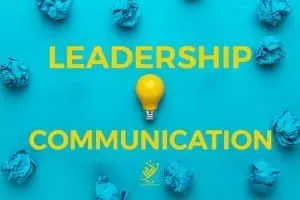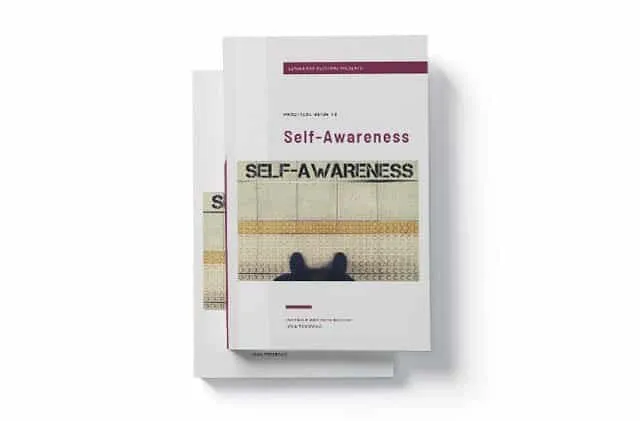When it comes to finding the best people, many employers look for individuals who have strong leadership skills. Leaders can motivate and inspire, driving their team to achieve great things. So, what are the top seven skills that employers are looking for in leaders? Let’s take a look.
How to find leadership skills in demand?
I’ve spent years in the hospitality industry and while this wasn’t the only industry I worked in, it showed an immense need for the skills that I’m about to share with you. Have in mind that the number of skills I present to you here are not the only ones.
Through research, I have found several dozen skills that are present in high-performing leaders. You can check out one of many research papers I looked at. It’s the NBER Working Paper Series titled The Demand for Executive Skills published by the National Bureau of Economic Research in Cambridge, Massachusetts.
The paper was published by Stephen Hansen, Tejas Ramdas, Raffaella Sadun, and Joe Fuller. They used a novel algorithm that mapped the text of each executive search into six separate skill clusters reflecting cognitive, interpersonal, and operational dimensions. The data showed an increasing relevance of social skills in top managerial occupations, and a greater emphasis on social skills in larger and more information intensive organizations. Specifically, companies have become increasingly more likely to demand social skills — i.e., the capability to interact, persuade and more generally relate to others relative to more traditional operational and administrative capabilities.
What this tells us is that the need for skills has drastically shifted towards soft, or rather power, skills.
1. Communication Skills
The first skill on my list is communication. It was ever since I entered a corporate world, it still is, and it always will be. From retail to construction and hospitality, there was not a single situation where communication was less relevant. Internal and external communication, written and verbal. In fact, according to National Association of Colleges and Employers, 95.9% of employers find communication skills essential, but they believe only 41.6% show efficiency in those skills.
With this information, we can look into ways of improving communication skills.
Improving Verbal Communication Skills
Improving your verbal communication skills can be done with 3 steps.
- Listening is an essential skill for anyone who wants to improve their communication and relationship-building abilities. If you really listen, then it’ll be easier not only to remember what they said but also to come up with thoughtful responses that will make the other person feel understood.
- Engage people you communicate with. Create a discussion where you can better communicate your ideas and concepts and hear new ideas, questions, and feedback.
- Keep your conversations simple, and your messages short, clear, and concise.
Improving Written Communication Skills
Like with verbal communication, we can improve written communication in several ways.
- One of the first thing I focus on when writing business letters, proposals, emails, and others, I always check whether it will make sense to the reader. I do so by organizing my thoughts before writing.
- I follow through by writing an outline first, then add some context.
- Next, I will include relevant information to support the outline or headings.
- Finally, I will proofread the entire text by reading it out first and see if it makes sense overall. Then, I will use a proofreading software to further enhance my writing. I use ProWritingAid daily for all my written communication.
By improving your communication skills, you will become a better leader and a better teammate.
2. Critical Thinking
Second skill on my list is critical thinking. Critical thinking is crucial for any workplace and any position. It’s not just about analyzing evidence and drawing conclusions. Thinking critically over time becomes a habit, which automatically improves your problem-solving skills.
Some schools already include critical thinking in their programs, but it is vital to implement it in real-world situations.
How to Develop Critical Thinking Skills
You can develop your critical thinking skills by focusing on its development. One activity that I recommend to my coaching clients is to work on identifying facts and opinions. The ability to differentiate between the two is essential for developing critical thinking.
An opinion is what someone thinks is right. A fact is the truth that can be proven. Opinions are often based on emotions and feeling, and we can prove facts with some form of evidence.
Second activity that I recommend is the compare and contrast. Comparing something is identifying things that are the same between things. Contrasting is identifying what is different between them.
3. Decision-Making
Third skill on the list is decision making. As a leader, you will be often required to make decisions. The goal of a leader is to delegate those decisions as much as possible and avoid micro-management. Although most of the decision-making can be delegated, there will be some that you will need to make.
When you make a critical decision that will affect your organization on a large scale, it’s important to be sound and rational. You need solid evidence for the choice you’re making, so it won’t always come back and bite later when things don’t work out as planned.
Ultimately, decisions can make or break a leader and influence success, or lack off, of the entire organization. This can come out from making some unpopular, but necessary, decisions as well.
There are two ways you can work on improving your decision-making skills:
- Take the time to gather as much information as possible before deciding. This will ensure that you have all the facts and can make an informed choice.
- Learn to trust your gut. Sometimes, even with all the information in front of you, you’ll need to go with your instinct. If you’ve done your research and feel confident in your decision, go with it.
4. Relationship Building
The fourth leadership skill employers are looking for is the ability to build relationships in the workplace. Strong relationships are essential for a cohesive and productive team.
Good relationships with employees not only increase productivity but also improve quality and reduce absenteeism. A study by Gallup found that business units who had higher levels of engagement had 41% fewer defects in their work. In addition, they discovered 21% more productivity would result from high degrees of loyalty within the company as well!
We all need to be skilled in building good relationships, even if we don’t think so at first. If your team is highly engaged and happy with you as their leader, then it’s likely that they will love or respect what kind of work environment you create for them.
There are a few ways you can work on building better relationships with your coworkers:
- Talk to them and get to know them on a personal level
- Encourage team bonding and social activities outside of work
- Be understanding and supportive when things go wrong
- Give praise and recognition more often
If you can build strong relationships with your coworkers, you’ll be well on your way to becoming an outstanding leader.
5. Conflict Management
The fifth leadership skill that employers look for is conflict management. The American Management Association reports that 24% of a manager’s time is spent on conflict. This can happen in many areas, such as between two or more individuals and even with customers, suppliers, and competitors.
No matter how well you get along with your team, there will always be conflict. It’s inevitable. What separates outstanding leaders from the rest is their ability to resolve conflict quickly and efficiently. It is a leader’s responsibility to resolve or mitigate conflicts before they affect the business. When properly dealt with, these can even turn out for your organization in positive ways!
There are a few key things you can do to manage conflict effectively:
- Be patient and understanding
- Encourage open communication between team members
- Find creative solutions that satisfy everyone involved
- Lead by example and show respect for others
6. Negotiating
The sixth leadership skill, negotiating, is sometimes thought to be needed only for salespeople and lawyers. Because of that, it’s often overlooked as an essential leadership capability.
But the ability to negotiate is critical for any leader who wants to get the best results for their team or organization. After all, we need negotiation skills in nearly every business situation, from managing vendor contracts to handling difficult employee conversations.
There are a few steps you can take to develop outstanding negotiation skills:
- Prepare — understand what outcome each side wants to get
- Listen — allow the other person to share their thoughts first
- Resolve — quickly resolve any challenges or differences that come up
- Prioritize — above all, establish connections and build healthy relationships
When you’re an excellent negotiator, you can get what you want while still respecting the other person’s needs. You can also create a win-win solution that leaves everyone happy and builds better relationships with the people you work with.
7. Agility
The seventh leadership skill employers look for is agility. Leaders who are agile can quickly adapt to new situations and change course when necessary. They’re also able to decide quickly, without overthinking things.
I never thought about agility as a must-have skill in leadership until the early 2011. That was the year when entered hospitality and realized that the traditional approach, or rather waterfall style I picked up in construction, won’t work in a hotel environment.
This was the time where I learned that to be agile, it’s important to:
- Be open to change
- Be proactive instead of reactive
- Be able to adapt your leadership style to different situations
- Be comfortable with ambiguity and uncertainty
These leadership skills will be in demand for years to come
These are the seven leadership skills that I believe are essential in any industry. If you’re looking to improve your leadership skills, start with these. And if you’re an employer, look for these qualities when hiring leaders for your team.
Out of the 7 skills I listed, communication is the top-most needed skill. Check out the article below to discover why communication is important in leadership and how you can improve it.

7 Principles of Effective Leadership Communication Strategies
Effective leadership communication is a crucial aspect of personal development. Leaders can achieve personal and professional success through purposeful leadership communication. In this article, I







